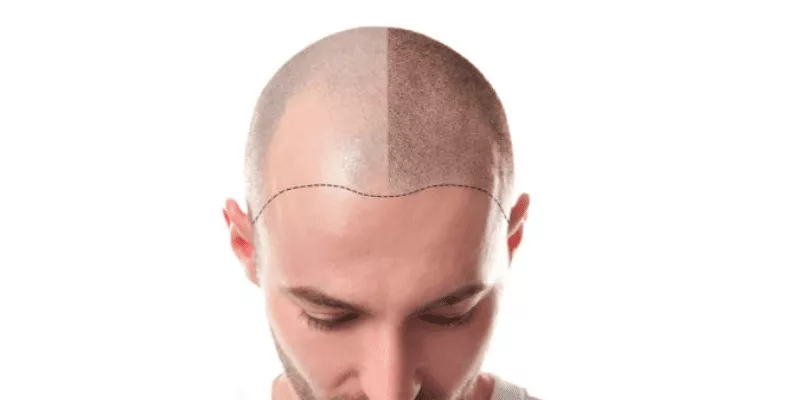How Long After Hair Transplant Can You Go Swimming?
How long after hair transplant can you go swimming? You can take a shower 48 hours after your hair transplant, but swimming in any kind of water is not recommended until your hair surgeon gives you the all-clear.
Millions of people have thinning hair, hair loss, or are going bald, and about 400,000 of them will get a hair transplant or restoration procedure. When hair follicles are damaged and “die,” hair loss and balding happen. During a hair transplant, small groups of healthy hair follicles, called grafts, are taken from a donor site on the head and moved to an area where there is little or no hair.
A hair transplant can take four hours or more, and during that time, the hair surgeon will put in hundreds or thousands of tiny grafts. You may need more than one session to get the hair you want or if your hair continues to fall out. A hair transplant takes time and money, and the best results of the surgery depend a lot on how well you take care of yourself after the procedure. You should give the hair grafts that were just transplanted enough time to heal. This means taking the right steps so that you don’t have problems with hair growth or density in the future.
How Long After Hair Transplant Can You Go Swimming On Pool?
After a hair transplant, your scalp may be very sore, and you may need to take painkillers for several days. Also, you will have to wear bandages on your head for up to 48 hours. During the transplant, healthy hair follicles have moved, but the new hair, which has dead, will fall out in two to three weeks. Eight to twelve months after the procedure, new hair growth usually starts, and your doctor may give you a pill or a cream to help stop or slow hair loss in the future.
Most people can go back to work two to five days after a hair transplant, but they shouldn’t do anything too hard for about two weeks. This is because you won’t get your stitches out until about 10 days after surgery. Again, you can take a shower 48 hours after your hair transplant, but swimming in any kind of water is not recommended until your hair surgeon gives you the all-clear.
Even though chlorine kills bacteria and viruses in the water, it could hurt or irritate your hair grafts or sensitive scalp. Most hair surgeons will tell you to stay away from chlorinated water for two weeks to a month after the surgery. In the past, doctors told people who had a hair transplant to go swimming in the ocean because they thought the salt would help clean the wound and speed up the healing process. Doctors now know that this is not good advice, since possible contaminants and/or pollution in the water can make you much more likely to get sick.
Why Shouldn’t You Swim After Hair Transplant?
Most of the time, you shouldn’t swim for two to four weeks after surgery, or until your surgeon gives you the all-clear. Your hair grafts and donor areas of your scalp need time to heal, especially for the scabs to heal and fall off on their own. This will make it less likely that you will get sick.
When you do start swimming, there are a few other things to think about to keep your scalp and hair healthy. The most important thing to do is pay close attention to the area where transplants have given. Some diving techniques and other water activities, for example, can put stress on the area. When the chin touches the chest or the head is in other similar “head down” positions, strain can happen. During the healing time, you should avoid any other position that pulls on the sides or back of the head. If you don’t take these precautions, it could slow down the healing process and make the procedure less likely to work.
Post-operative care is very important if you want your hair transplant to work. It makes sure you’re comfortable and gives you the best chance of getting hair to grow.
What Does Chlorine Do To Your Hair?
It’s important to make sure your hair grafts heal well after a hair transplant. Early problems with the hair grafts can cause problems with hair growth and density later on. Because of this, it’s important not to stress out your scalp or expose the hair grafts to things that could hurt them. Given all of this, it’s important for patients to stay out of the water until their hair surgeon tells them it’s okay.
What’s wrong with chlorinated water? Bacteria and viruses in the water may be able to keep in check by chlorine, but the chlorine could kill your grafts. Some evidence shows that chlorinated water can hurt hair grafts that have put in after surgery. If you don’t want to risk the results of surgery, you should stay out of the pool.
How Long After Hair Transplant Can You Go Swimming On Ocean?
Fresh water has a lot of things that could be bad for you, which makes the risk of getting an infection after surgery quite high. Some surgeons used to tell patients to go swimming in the ocean soon after surgery because they thought the salt water would help them heal. However, the ocean is not as clean as it used to be. Patients should also stay out of lakes, rivers, and oceans for a while.
In general, people who have had surgery should not swim in pools for two to four weeks. This will give the hair grafts and the part of the scalp that has used as a donor enough time to heal. After a few weeks, the chlorine won’t hurt the grafts. Patients have told to wait until all the scabs on the scalp have fallen off on their own before going back into fresh or salt water to swim. By this time, the scalp will have healed enough that a simple dip in a lake or the ocean won’t cause an infection.
How Long After Bariatric Surgery Can You Have Caffeine as a Coffee Drinker?
As someone who enjoys coffee, you may have wondered if it is safe to consume caffeine after having bariatric surgery. The answer to the question “how long after bariatric surgery can you have caffeine?” is with restrictions, after waiting for at least three months. This is because the surgery reduces the amount of stomach acid that is produced, which can affect the absorption of certain compounds found in coffee. In answering, “can you drink fizzy drinks after gastric sleeve or any other bariatric surgery?” you should also avoid any other high-caffeine beverages such as energy drinks and soda. When you do start drinking coffee again, it is important to do so in moderation. Caffeine can cause dehydration and increase your risk of developing kidney stones, so it’s best to limit your intake of coffee to no more than two cups per day. It’s also essential to avoid adding any sugar or artificial sweeteners to your coffee since these can cause problems like gas and bloating. Additionally, be sure to drink plenty of water throughout the day to help keep you hydrated and reduce the chances of developing any complications. We hope this article answers “how long after bariatric surgery can you have caffeine?”






